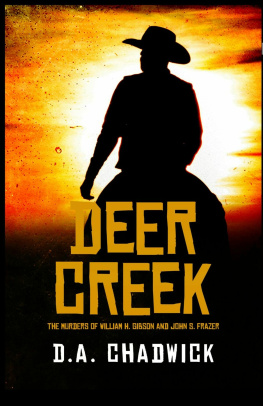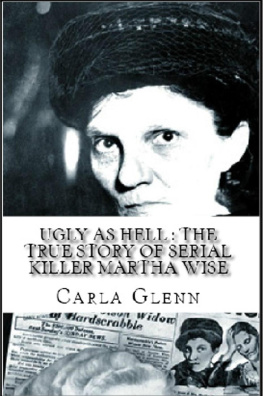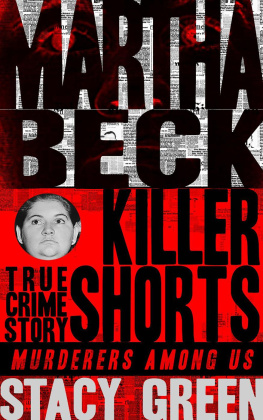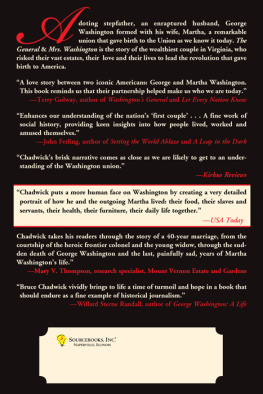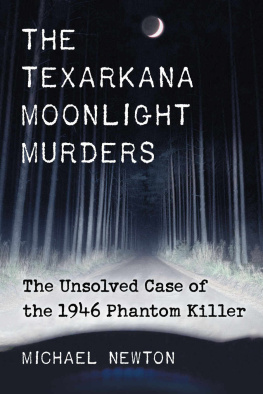Martha Grimes - The End of the Pier
Here you can read online Martha Grimes - The End of the Pier full text of the book (entire story) in english for free. Download pdf and epub, get meaning, cover and reviews about this ebook. year: 1993, publisher: Ballantine Books, genre: Science fiction. Description of the work, (preface) as well as reviews are available. Best literature library LitArk.com created for fans of good reading and offers a wide selection of genres:
Romance novel
Science fiction
Adventure
Detective
Science
History
Home and family
Prose
Art
Politics
Computer
Non-fiction
Religion
Business
Children
Humor
Choose a favorite category and find really read worthwhile books. Enjoy immersion in the world of imagination, feel the emotions of the characters or learn something new for yourself, make an fascinating discovery.

- Book:The End of the Pier
- Author:
- Publisher:Ballantine Books
- Genre:
- Year:1993
- Rating:4 / 5
- Favourites:Add to favourites
- Your mark:
- 80
- 1
- 2
- 3
- 4
- 5
The End of the Pier: summary, description and annotation
We offer to read an annotation, description, summary or preface (depends on what the author of the book "The End of the Pier" wrote himself). If you haven't found the necessary information about the book — write in the comments, we will try to find it.
The End of the Pier — read online for free the complete book (whole text) full work
Below is the text of the book, divided by pages. System saving the place of the last page read, allows you to conveniently read the book "The End of the Pier" online for free, without having to search again every time where you left off. Put a bookmark, and you can go to the page where you finished reading at any time.
Font size:
Interval:
Bookmark:
End Of The Peer by Martha Grimes
The bestselling author of The Old Contemptibles brings her brilliant brand of British psychological suspense to a dazzling new novel of small-town American intrigue. Maud Chadwick learns about loss as her son leaves the nest--and learns about murder as her lawman lover follows the trail of a serial killer.
Ballantine Books
ISBN: 0345376579
Copyright 1994
Ramon Fernandez, tell me, if you know, Why, when the singing ended and we turned Toward the town, tell why the glassy lights, The lights in the fishing boats at anchor there, As the night descended, tilting in the air, Mastered the night and portioned out the sea, Fixing emblazoned zones and fiery poles, Arranging, deepening, enchanting night.
Oh! Blessed rage for order, pale Ramon, The maker's rage to order words of the sea, Words of the fragrant portals, dimly-starred, And of ourselves and of our origins, In ghostlier demarcations, keener sounds.
"The Idea of Order at Key West"
--W A L L A C E S T E V E N S Maud The Rainbow Cafe treated any day before a holiday like big money.
Maud wondered as she set the hot beef sandwich and mashed potatoes on the counter just why Shirl expected this surge of extra business. The only people at the counter had been Ubub and Ulub Wood, and they'd eaten what they always ate, the daily special. Ubub and Ulub had other names, but they'd been long forgotten. It was either Dodge Haines or Sonny Stuck who'd decided to call them by the letters on their license plates--UBB and ULB. They drove twin Ford pickups, black and battered.
No one could figure out just how they'd managed to get those trucks battered up in the same way, so that the only thing that distinguished one from the other was the tag.
Maud hadn't wanted to go to work this day, and then she had. She had meant to stay home, but it was the Labor Day weekend, so she had settled on going in an hour later than she usually did. Shirl hadn't even noticed, despite her prediction of their getting in a crowd.
She drew a cup of coffee in a white mug and put that in front of Ulub, who didn't say anything, he never did. Maud wondered if he ever had.
Since he always wanted the special, Shirl and Charlene always knew what to give him. Ubub did the talking, what there was of it, for both of them.
Shirl was ringing up a take-out order of doughnuts and coffee, sitting on a high stool behind the register and shoving the stuff across the black counter at a teenage kid. She handed him his change and a venomous look as if he'd made her open the register at gunpoint. He left.
When the teenager left and was walking past the window, Shirl started talking about "the little creep" to Maud. Not the one who'd left, but her son. Probably, any kid that age brought her son to mind. His name was Joseph, and she only called him by name when she wasn't in a white rage with him, which was seldom.
Everyone else called him loey. He was "the little creep", his father, who'd left them flat after Joey was born, was still "the big creep."
Charlene kept telling Shirl she should be glad he wasn't getting stoned and flying off rooftops.
"The little creep's too lazy to fly, and of course he ain't doing drugs--it'd cut into his shoplifting time." Joey had hooked some sunglasses from the SuperSaver Discount Store the day before.
Shirl had called this down the counter to Charlene as she shoved a plain white bakery box at a customer. Lemon chiffon was always the special pie of the day except at Thanksgiving and Christmas, when Charlene wiped off the blackboard and wrote in "Punkin."
Joey would come in nearly every day for lunch and Maud would get him his favorite--beef stew--and butter four slices of bread for him. I le was usually off school, suspended but not expelled, and Shirl acted like a parole officer. The boy had a pale little face and a smile like smoke, hardly there and quickly dispersed, as if there'd been something in the past worth smiling about, a memory that had guttered out.
Shirl would shuffle towards him and start in, calling him "Joseph this" and "Joseph that," ask him all sorts of questions: did he mow the lawn, rake the leaves, shovel the snow? depending on the time of year. She didn't stop until he'd eaten the fourth slice of bread, when she'd stick another cigarette in her mouth and shuffle away. Then Maud would pour him a second cup of coffee.
He'd smile that vanishing smile at her, give her his condolences for haing to work there, ball up his napkin, and leave. It was a ritual whenever he was suspended from school for breaking into lockers or calling the math teacher a pervert. a sleazeball, a scumbag. Five days a week Maud would watch him come in and go out and remember something about gates of ivory, gates of horn. She'd had three years of college, mostly literature courses, and loved to read. Still, she couldn't recall where those gates were, or just what they meant, except some important passage to somewhere, somewhere final.
As she hung her apron on the peg and took down her coat at seven o'clock that evening, she thought how Joey would be going back to school the day after Labor Day.
Then she stopped thinking about Joey and school, for that only made her think of Chad, and he was gone.
That was why she hadn't wanted to go to work. She had really wanted to come down here, where she was now, to the end of the pier.
Maud sat on the end of the pier watching the party across the water.
It had been going on, it seemed, all summer, and she wondered, as people do about the tree in the forest: did it simply stop when she wasn't around to hear it? It had been just before the Fourth of July when she'd noticed the lights and come down here and looked across the wide lake at Japanese lanterns like strings of Christmas lights. The first time she'd simply stood for a while, squinting over the water, hearing the faint strains of music.
The next night she'd come down with her martini glass and sat on the edge of the dock, her bare legs dangling over the edge.
The night after, she'd come with a wood-and-aluminum chair and a cold bottle of Popov vodka, and in the following nights and weeks she slowly furnished the end of the pier.
After the Fourth, she'd brought down a small table and a Colonel Sanders plastic tub filled with ice in which she'd stowed her ready-mixed-martini Popov bottle. Then, when Chad came home from college, she'd got him to haul down an old rocker from the bedroom of the cottage that sat back along the path in the woods.
He told her it wasn't a pier, it was a dock, and he couldn't imagine why she'd want to sit out here for hours at night.
Chad had been sitting in the aluminum chair, drinking beer, looking around the lake frontage, checking out the marshy grass-the pier was in a little cove--and the tree with a heavy root above ground like a bent knee, a tree praying in the matted grass and weeds.
He sighed, world-weary at twenty, and asked her, "Why do you keep working at Shirl's?"
"Because it's dark and quiet, I guess."
He pulled another beer from the carton, there was a little sucking noise as he uncapped it. "I hope that's not what life is, just something dark and quiet."
"If you're lucky," she'd said.
In the darkness his head turned. "Come on, Mom."
It hadn't been the real question, anyway. It wasn't "Why do you work at Shirl's?" but "Why do we live in such a nonhappening place, why didn't you finish college and get your English degree, why didn't you get a great job, become an executive, maybe, or at least marry one, someone we could have lived with instead of him, why don't you own your own restaurant, why is that a cube of ice in your glass and not the moon?" Maud said, "Shirl likes you."
He was lighting a cigarette, and the flame from his disposable lighter lit up his profile and went out. "Shouldn't she? I'm polite."
Next pageFont size:
Interval:
Bookmark:
Similar books «The End of the Pier»
Look at similar books to The End of the Pier. We have selected literature similar in name and meaning in the hope of providing readers with more options to find new, interesting, not yet read works.
Discussion, reviews of the book The End of the Pier and just readers' own opinions. Leave your comments, write what you think about the work, its meaning or the main characters. Specify what exactly you liked and what you didn't like, and why you think so.

